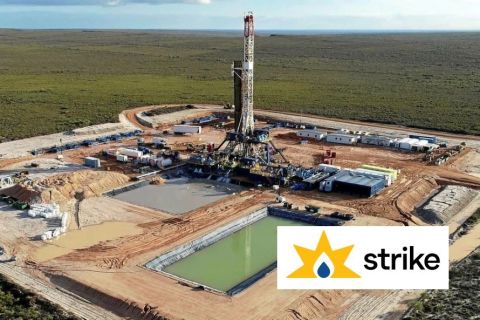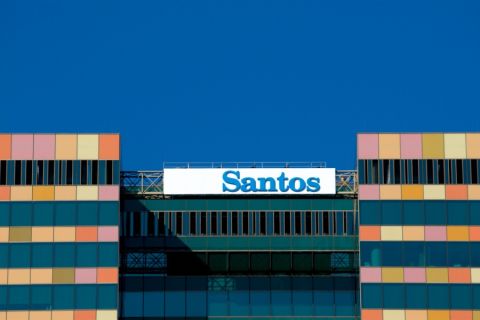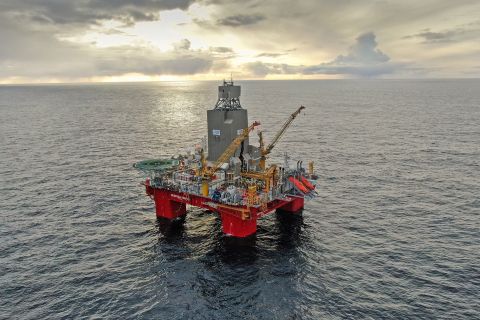
[Editor's note: A version of this story appears in the December 2019 edition of Oil and Gas Investor. Subscribe to the magazine here.]
Ladies and gentlemen, the state of oil and gas M&A is pouty.
Ill trade winds and politics are apparently kicking up an inconvenient amount of worry for executives. Upstream activity turned dismal in the third quarter while the XOP index of energy companies ticked up 10% from Oct. 8 through Nov. 12.
However, the index is still down since the year began by 17%. Nevertheless, not all the news is bad, or even rational.
Crème Brouillette. Dan Brouillette, President Donald Trump’s nominee for Energy Secretary, may be unknown outside of Washington, D.C., but a professional, campaign-style video released on Nov. 8 certainly makes one thing clear: He’s into slow motion.
At just over a minute (it seems longer), Brouillette’s video shows him swaggering, wearing safety-goggles, walking up stairs, touring facilities and fist-bumping, all in slo-mo. But the video may play well to U.S. senators—average age, 62—who could appreciate the nod to the stop-motion animation they enjoyed in their mid-30s.
Modus operandi. In a different moving picture, Encana Corp. is packing up its Canadian home to move to the U.S., where it will rebrand under the name Ovintiv, causing some speculation the company may be open to buyers.
“Is ‘Ovintiv’ Latin for ‘takeout candidate?’” Bernstein Research wrote on Oct. 31. Staying in the north would have put Encana under the jurisdiction of the Investment Canada Act, which allows the government to block foreign transactions.
Hippo inflation. Next time leasehold prices seem high, be thankful you’re not buying a tub. Bloomberg reported Nov. 12 that a bathtub shaped into a golden hippo sold at Christie’s for $4.3 million. The previous owner paid $168,000 in 2006, suggesting a 2,500% return.
Spend a penny. Speaking of bathrooms, M&A values plunged to $37.5 billion in the third quarter, down 70% vs. third-quarter 2018, according to PwC’s quarterly analysis.
Upstream continued to make noise in the quarter with 58% of deal activity and 48% of transaction value.
PwC noted that fourth quarters are historically good for deals, but “whether that historic trend is enough to offset the general downward slope of [oil and gas] deals in 2019 remains to be seen.”
Mahogany vs. balsa. Taking a larger view of the industry, Wood Mackenzie said that while global upstream M&A is shrinking, E&Ps starved of exploration capital want to reshape their portfolios “for resilience in the face of long-term demand.”
“On the face of it this sounds like a paradox, but it is because the role of M&A in adding new barrels to company portfolios—in part because of a sharp fall in exploration—has become more important,” said Angus Rodger, Wood Mackenzie’s research director.
He noted that from 2005 to 2014, 37% of the new resource added to upstream portfolios came from M&A.
“In the last three years (2015 to 2018), this has risen to 46%. Yet at the same time global M&A activity declined since 2014,” he said.
That contrasts with executives who are increasingly gloomy about M&A prospects in 2020, Texas Lawyer magazine reported on Nov. 7. A survey by law firm Dykema Gossett found that about 32% of CEOs and CFOs are generally pessimistic about M&A compared to 15% a year ago.
“The two greatest threats to M&A activity over the next 12 months are trade tensions with China and U.S. political uncertainty,” the report said.
Unsettle right in. Perhaps the most consistently picked on Trump appointee since Attorney General Jeff Sessions is Federal Reserve chair Jerome Powell—a public berating that he clearly deserves for taking the job.
On Nov. 12, at a speech to the Economic Club of New York, the president said major stock indices would be up “another 25%” if his pick to head the Federal Reserve had been more of a team player.
But Trump’s trade war is more often cited by economists as the primary drag of productivity.
Starting in 2018, tariffs were placed on solar panels, washing machines, steel (though not titanium sponge) and aluminum before a rapid escalation of customs duties with China, which retaliated.
Until the trade war is settled, a slice of executives appears reluctant to make deals, particularly since a bad economy makes for lower oil prices. During the president’s New York speech, Trump said the U.S. and China are “close” to a deal. As oil and gas dealmakers might say, “Show me the PSA.”
Recommended Reading
US Drillers Add Oil, Gas Rigs for First Time in Five Weeks
2024-04-19 - The oil and gas rig count, an early indicator of future output, rose by two to 619 in the week to April 19.
Strike Energy Updates 3D Seismic Acquisition in Perth Basin
2024-04-19 - Strike Energy completed its 3D seismic acquisition of Ocean Hill on schedule and under budget, the company said.
Santos’ Pikka Phase 1 in Alaska to Deliver First Oil by 2026
2024-04-18 - Australia's Santos expects first oil to flow from the 80,000 bbl/d Pikka Phase 1 project in Alaska by 2026, diversifying Santos' portfolio and reducing geographic concentration risk.
Iraq to Seek Bids for Oil, Gas Contracts April 27
2024-04-18 - Iraq will auction 30 new oil and gas projects in two licensing rounds distributed across the country.
Vår Energi Hits Oil with Ringhorne North
2024-04-17 - Vår Energi’s North Sea discovery de-risks drilling prospects in the area and could be tied back to Balder area infrastructure.




